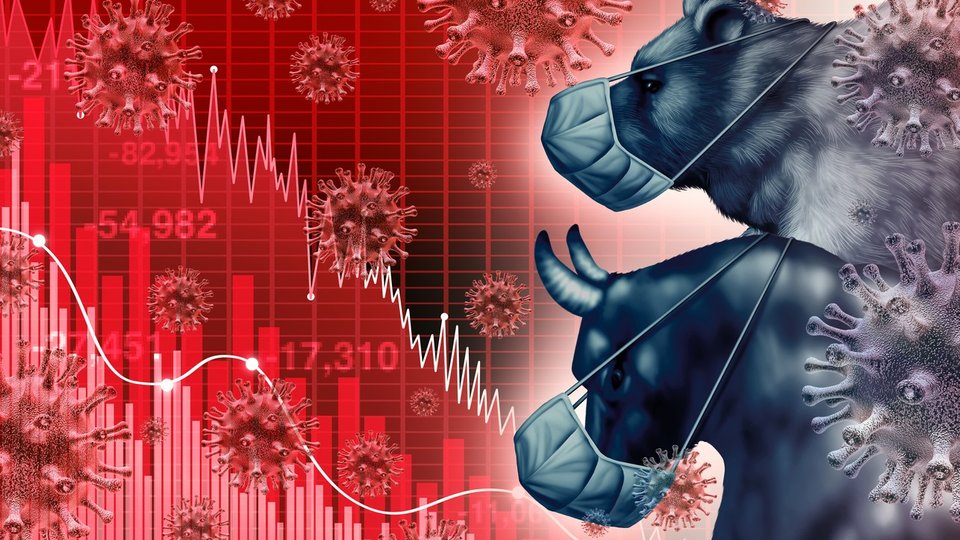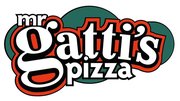Article
Pizza stocks join others in freefall
Before the markets opened this morning, a rough week wrapped up for pizza stocks. But a glimmer of hope did come from one market expert, who coined an acronym to remind investors that pizza stocks might be a good bet amidst the hunkering down caused be the pandemic.

March 16, 2020 by S.A. Whitehead — Food Editor, Net World Media Group
Editor's note: Posted before markets opened March16, 2020.
After the Federal Reserve said Sunday said it was cutting the interest rate to zero as part of a stimulus package in response to the culminating business effects of COVID-19, many are predicting that the Dow will sink on the opening bell this morning.
Friday, when the markets closed, the markets had already bounced back a bit after the freefall to levels below the 1987 Black Monday crash, but this weekend's announcement is expected to turn even that around.
At the close last Friday, some of the largest publicly traded pizza brands were reeling after a week of full-on assault by nervous investors, which ended up pulling Domino's recently rapidly ascending value down $19.78 over the week, from $336.41 the previous Friday's close to $316.63.
The same sad tune was being played at the close of business Friday in Louisville, Kentucky, where Papa John's watched its value drop $8.08 to $49.66.
At Louisville-based Pizza Hut parent, Yum Brands, leadership was in the same sour mood after watching that company's stock value drop $10.94 in a week to close Friday at $78.46.
But the damage done last week may have been most injurious to Rave Restaurant Group, the parent company of Pizza Inn and Pie Five, which saw its stock value plummet from $1.26 the previous Friday's end of trading, to just 86 cents on March 13 at the close.
After those assaults on publicly traded pizza values, pizza operators and investors could take some refuge in the fact that businesses that support their operations are also being severely affected by the pandemic's pressures, thus pizza commodity prices are also falling.
And there was some other interesting pizza-related stock news also last week, in the coining of a new Wall Street acronym related to the COVID-19 consternation. That is the word "D-A-W-N" as in "It's always darkest before the DAWN."
Yes, out of the haze, confusion and overall toilet paper-hoarding panic induced by COVID-19, this acronym was — according to South African business site —BusinessTech, created by Strategic Wealth Partners CEO Mark Tepper's on the Thursday CNBC show, "Trading Nation." And the D in that acronym stands for Domino's, the first stock of four that Tepper said could weather the storm of the pandemic.
The three other stocks were A as in Activision for video games, followed by W for Walmart, where consumers source toilet paper, and finally N for Netflix for streaming video content. Tepper predicted that since the virus was forcing people to stay home, consumers would depend on the businesses behind those stocks.
Wheat
Cash bids for wheat ranged 6 ½ cents to 23 cents lower, with Kansas City U.S. No. 1 hard red winter, ordinary protein rail bid, dropping 6 ½ cents, from $5.12 3/4-$5.22 3/4 per bushel. Kansas City U.S. No. 2 soft red winter rail bid was not quoted.
St. Louis truck U.S. No. 2 soft red winter terminal bid was 17 cents lower at $5.38 per bushel. Minneapolis and Duluth U.S. No. 1 dark northern spring, 14.0 to 14.5 percent protein rail, was 23 cents lower, from $6.39-$6.49 per bushel. And finally, Portland U.S. soft white wheat rail was 8 to 15 cents lower, at $5.85 per bushel.
Cheese
On cheese markets at the Chicago Mercantile Exchange last week, barrels averaged 7 cents lower, coming in at $1.45, while blocks were 3 cents higher at $1.79. Barrels closed Friday at $1.50 and 40-pound blocks at $1.8725.
The U.S.D.A. said there are obvious concerns about cheese orders regarding the coronavirus outbreak, with expectations and some early evidence indicating that foodservice orders will take a bearish hit, but retail orders could pick up as more people stock up on food supplies at their local groceries.
Cheese production is still busy with plentiful milk supplies and inventories holding steady to growing, as producers keep busy with current milk availability. Cheese market tones are positive but with caution.
The international picture may shed some light on how the virus could proceed to take effect in the U.S. since the coronavirus has had a more substantial effect thus far in some European nations.
Vehicle fuel
According to the American Automobile Association, pump prices continued to decline last week into this week, as the global economy faces significant downward pressure from COVID-19 fears and the ongoing crude price war. Last week alone, the national average for a gallon of regular gasoline has dropped by six cents, even as the U.S. Energy Information Administration said total U.S. domestic stocks fell last week by 5 million barrels to 247 million barrels, even as demand increased — from 9.19 million to 9.45 million barrels a day.
Shrinking gas stocks amid rising demand would typically put upward pressure on gasoline prices, but cheap crude prices have helped to push gas prices lower than expected. If crude prices remain low, the U.S. will likely see continued relief at the pump during the run-up to spring as the world grapples with how to contain the global public health threat and financial risks associated with COVID-19, AAA said.
Average gas prices came in at $2.26 a gallon for regular, a full 12 cents lower than the previous week, with similar drop-offs for mid-grade ($2.63) and premium ($2.89). Diesel didn't fluctuate as greatly over the week, averaging $2.74 today, down 7 cents over the week, while E85 averaged $2, which is down 11 cents from the previous week's average.
Editor's note: Access other stories related to Pizza Marketplace COVID-19 coverage here.
About S.A. Whitehead
Pizza Marketplace and QSRweb editor Shelly Whitehead is a former newspaper and TV reporter with an affinity for telling stories about the people and innovative thinking behind great brands.
 ChatGPT
ChatGPT Grok
Grok Perplexity
Perplexity Claude
Claude








